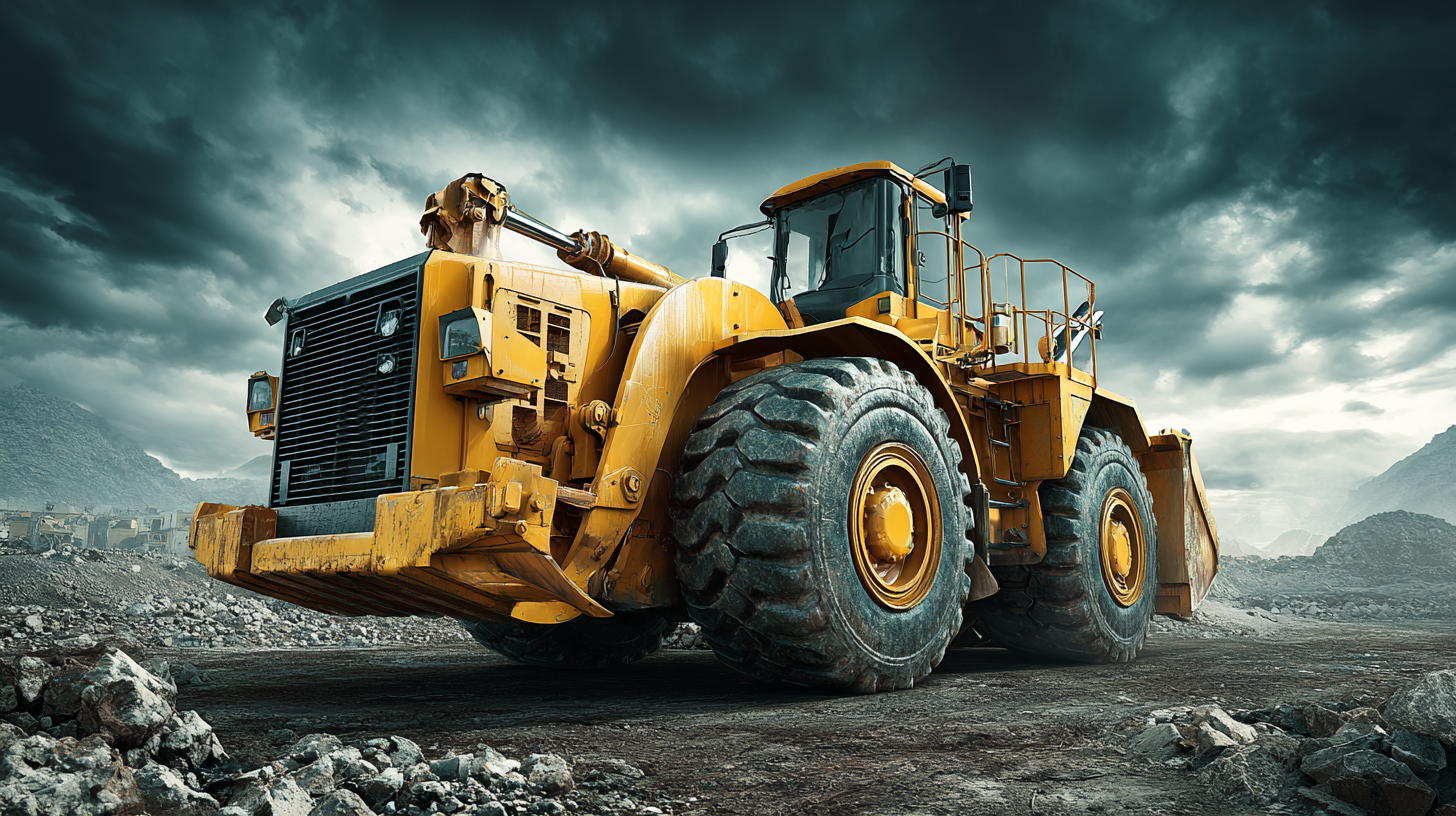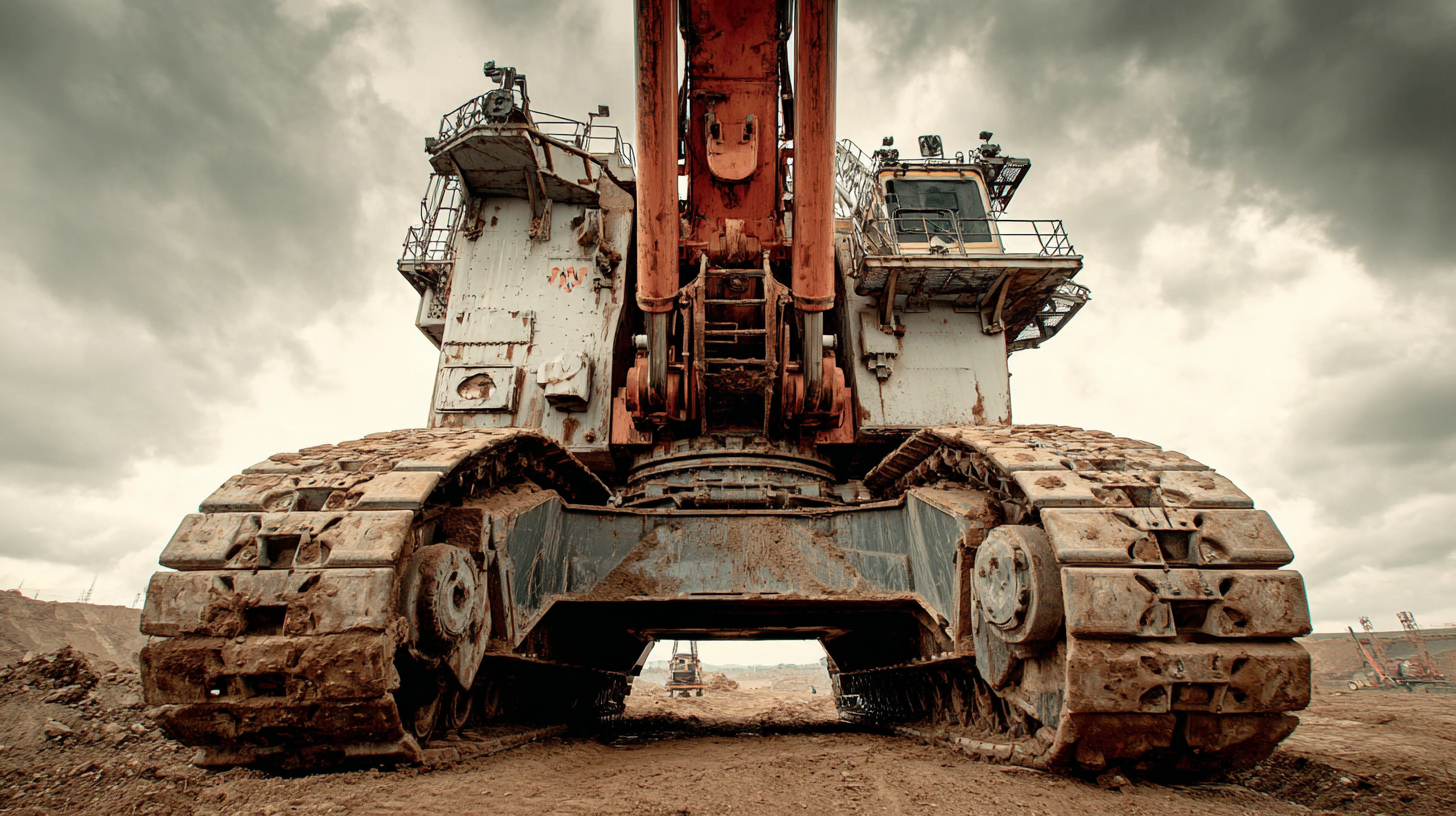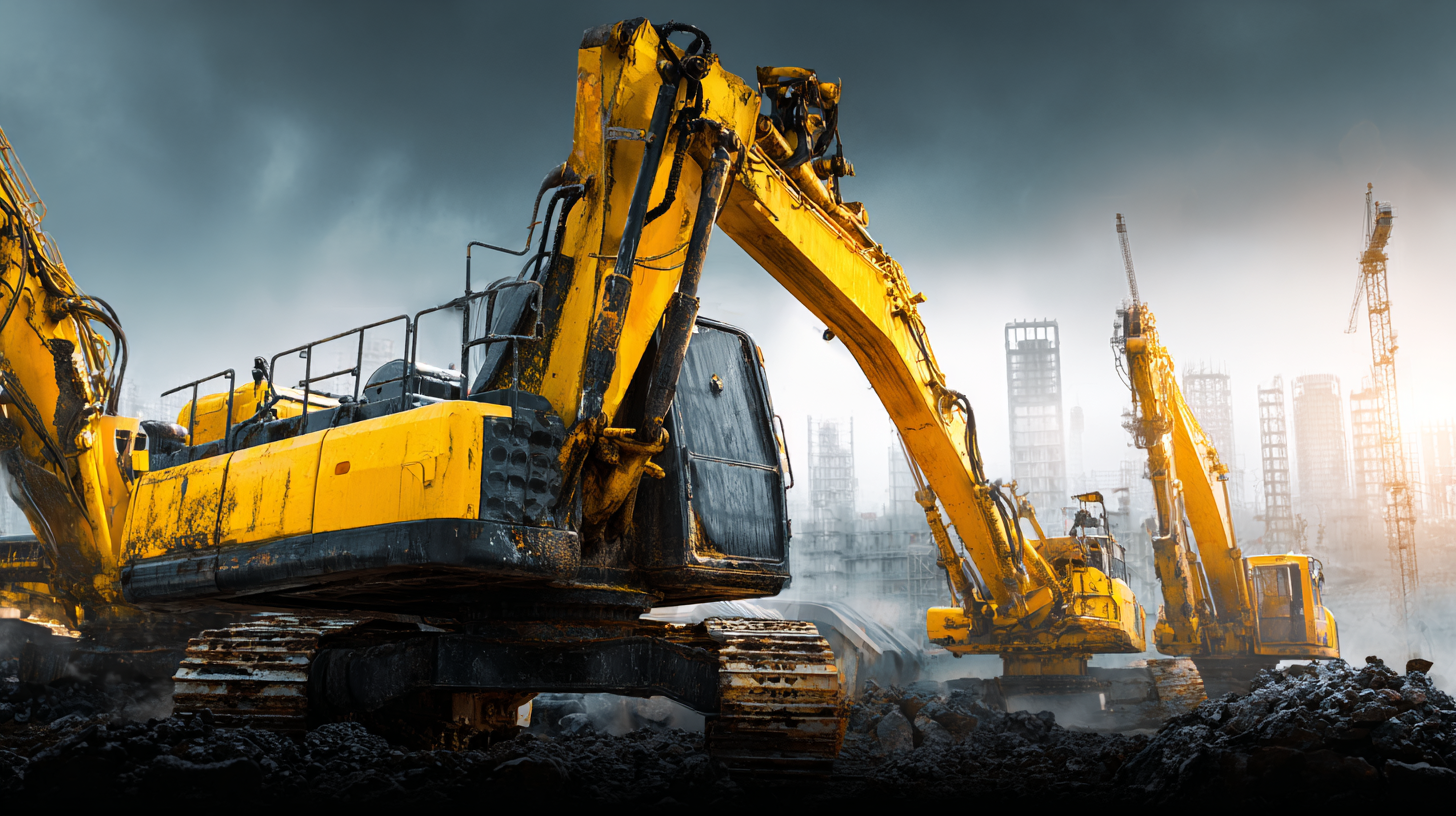Blog
Exploring Unique Alternatives to Best Heavy Machinery for Your Construction Needs
In today's competitive construction landscape, selecting the right heavy machinery is crucial for project success. While traditional heavy machinery options often dominate the market, there is a growing trend toward exploring unique alternatives that not only meet quality standards but also offer innovative solutions tailored to diverse construction needs. As the phrase "从中国走向世界,品质赢得全球市场" suggests, the global market is now more accessible than ever, allowing for the introduction of high-quality machinery from China and beyond. This blog will delve into some of these unique alternatives, examining how they can help you maximize efficiency, reduce costs, and enhance the overall performance of your construction projects. By understanding and leveraging these alternatives, contractors and builders can elevate their operations while maintaining a competitive edge in an ever-evolving industry.

Understanding Heavy Machinery Import and Export Certifications
Import and export certifications play a crucial role in the machinery industry, particularly as global trade continues to expand. Understanding the specific certifications required for heavy machinery is essential for businesses looking to operate internationally. For instance, the CE marking is a vital component for machinery sold within the European Union, indicating compliance with health, safety, and environmental standards. Similarly, the Bureau of Indian Standards (BIS) certification has recently become mandatory in India for various types of machinery, ensuring quality and safety compliance in the local market.
As the landscape of international trade evolves, staying updated on regulations and certifications becomes increasingly important for manufacturers and import-export businesses. The impact of events such as Brexit has led to new guidelines for importing and exporting used machinery, requiring businesses to adapt to changing requirements that may influence their operations. Moreover, ongoing geopolitical factors and sanctions can pose additional challenges in the import-export domain, emphasizing the need for thorough knowledge of compliance procedures and market entry strategies to navigate these complexities effectively.
Exploring the Import and Export of Heavy Machinery by Region
The Importance of Compliance in Construction Equipment Trade
In the construction industry, compliance with regulations is paramount when it comes to the trade of heavy machinery. Adhering to local and international standards not only promotes safety on job sites but also ensures that equipment performs efficiently and reliably. Non-compliance can lead to severe consequences, including hefty fines, project delays, and even legal actions that tarnish a company's reputation. As construction needs evolve, so too must the approach to selecting machinery, ensuring that each piece meets both regulatory requirements and the specific demands of the task at hand.
Moreover, understanding the compliance requirements can open up unique alternatives to the traditional heavy machinery typically relied upon in construction projects. Many businesses are exploring innovative options such as eco-friendly machinery or specialized equipment designed for niche tasks that also meet safety and environmental regulations. By prioritizing compliance, companies can not only diversify their machinery portfolio but also embrace sustainable practices that align with modern construction trends. This proactive approach not only enhances operational capabilities but also positions companies as leaders in a rapidly changing industry landscape.
Alternative Machinery: Innovations in Heavy Equipment Industry
In the ever-evolving landscape of the heavy equipment industry, innovations continually emerge to address the diverse needs of construction projects. Traditional machinery like bulldozers and excavators are being supplemented by alternative solutions that enhance efficiency and sustainability. For instance, electric-powered machinery is gaining traction, reducing carbon footprints while providing robust performance. These machines not only operate more quietly but also lower fuel costs, aligning with the growing emphasis on environmental responsibility in construction practices.

Moreover, advancements in automation and robotics are transforming how heavy machinery is utilized on job sites. Drones equipped with advanced imaging technology assist in surveying and monitoring tasks, allowing for highly accurate data collection with minimal manpower. Additionally, modular equipment designs offer enhanced versatility, enabling contractors to tailor machines to specific tasks without the need for multiple, dedicated pieces of machinery. This shift towards innovative alternatives not only improves productivity but also helps businesses adapt to the changing demands of the construction industry, paving the way for a more efficient future.
Navigating the Certification Process for Construction Machinery
Navigating the certification process for construction machinery can be a daunting task, but it's crucial for ensuring safety and compliance on job sites. Before purchasing any heavy machinery, it is essential to familiarize yourself with the relevant regulations and standards set by local authorities. Understanding these frameworks will help you select equipment that meets safety guidelines and minimizes the risk of legal issues down the road.
Tip: Always check for the certification status of the machinery you're considering. Each piece of equipment should have documentation proving it meets industry standards. Additionally, working with reputable suppliers who can provide thorough records and certifications can save time and stress during the procurement process.
Once you have selected machinery that meets the necessary requirements, prepare for inspections and audits. These may include assessments of equipment operational capability, safety features, and maintenance records. Staying organized and maintaining proper documentation will be essential during this phase.
Tip: Establish a regular maintenance schedule and keep detailed records. Not only will this aid in compliance, but it can also enhance the longevity and reliability of your machinery, ensuring optimal performance in your construction projects.
Assessing the Benefits of Unique Machinery for Construction Projects
In the realm of construction, relying solely on traditional heavy machinery can sometimes limit project efficiency and creativity. Exploring unique alternatives can introduce numerous benefits that might not be apparent at first glance.
 For instance, incorporating compact machinery such as mini-excavators and skid steers allows for increased maneuverability in tight spaces, making them perfect for urban construction projects. This adaptability can lead to reduced labor costs and quicker project turnaround times, proving that less can indeed be more.
For instance, incorporating compact machinery such as mini-excavators and skid steers allows for increased maneuverability in tight spaces, making them perfect for urban construction projects. This adaptability can lead to reduced labor costs and quicker project turnaround times, proving that less can indeed be more.
Moreover, advanced technologies like drones and automated machines offer innovative solutions that enhance productivity and safety on construction sites. Drones, for example, are invaluable for site surveying and monitoring progress, providing real-time data that can assist in decision-making and resource allocation. Simultaneously, automated machinery can minimize human error and improve precision in tasks such as grading and welding. By assessing these unique machinery options, construction managers can harness benefits that align with modern project needs, ultimately leading to more efficient and successful outcomes.
